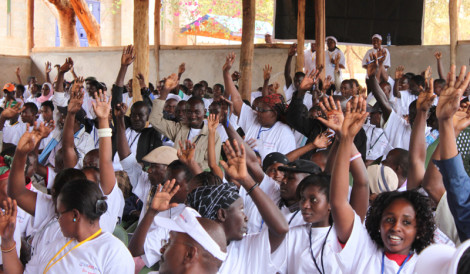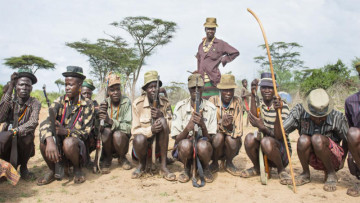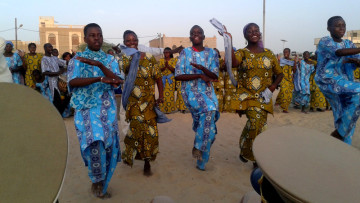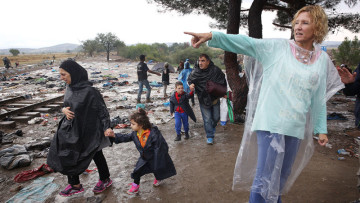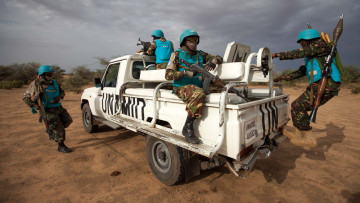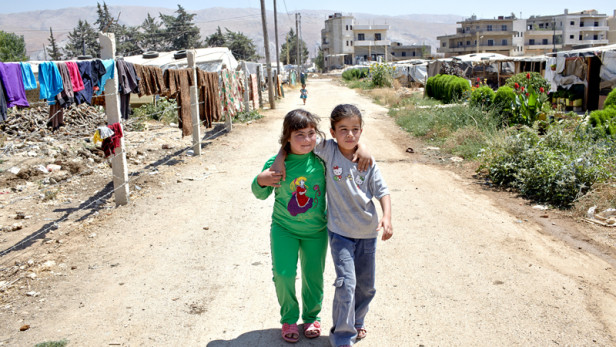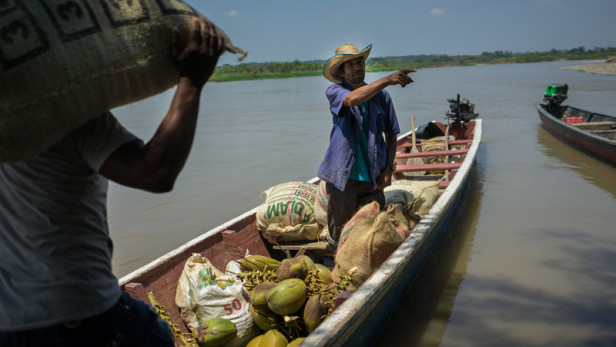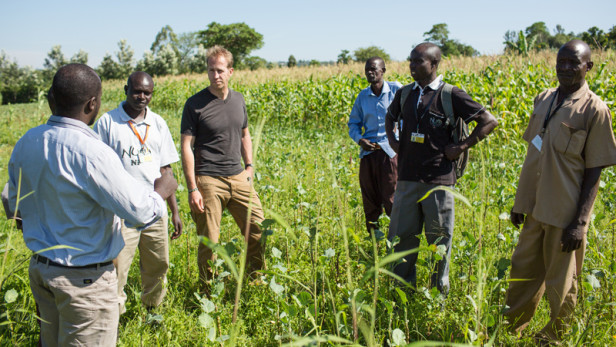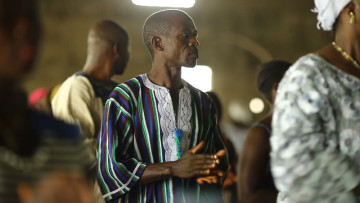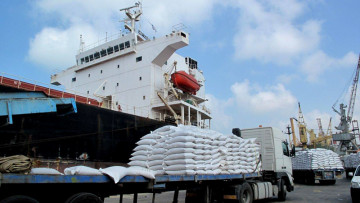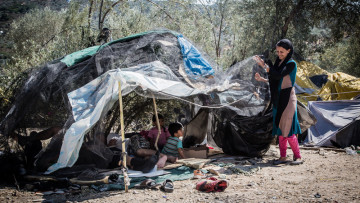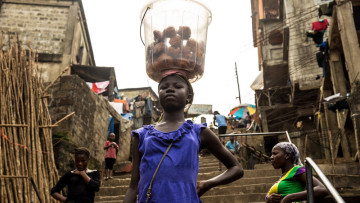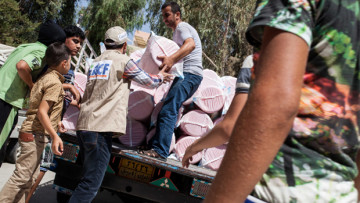Development, diplomacy and defense must work together to help shepherd countries from fragility to peace. U.S. Institute of Peace President Nancy Lindborg shares her thoughts on bringing together the "three D's" for more effective crisis response.
The Future
This week, we focus on the future, envisioning positive transitions to peace while noting how we can get there. What can we do to create a world free of conflict for the next generation?
A driving force for peace in fragile states
There are real strides being made to maintain peace in conflict and "post-conflict" zones. But no matter the method, all agree that before anything can efficiently work, good governance must be in play.
Sign up
Subscribe to the daily Devex newsletter, bringing you all the latest global development news, insights and advice.
A less fragile future
Any effort to improve economic or health outcomes that doesn't address conflict will not achieve its greatest impact. Mercy Corps CEO Neal Keny-Guyer shares insight into how the development community can do this in the toughest environments.
Mali's culture: the 'lynchpin' to country's recovery from conflict
The moment to seize the piece in Mali is now, according to co-founder of Timbuktu Renaissance Cynthia Schneider. Restoring culture will give Mali's citizens the resilience essential to recover from conflict and counter continued threats of violent extremism.
Lesbos: the collapse of the European asylum policy
Today's refugee crisis requires more determination, greater vision and more solidarity, Cordaid CEO Simone Filippini says, calling on Europe to address the root of conflict and practice generosity in it's treatment of asylum seekers.
Who pays for UN peacekeeping?
The answer depends on whether financial or human costs are considered. We take a closer look at the intricacies of the U.N. peacekeeping budget and contributions from developed and developing countries alike.
How do we define conflict?
Conflict comes in many forms. So how should development professionals define conflict? Elizabeth Martin, director of the Conflict and Crisis Practice at Chemonics, discusses this question with Devex and talks about ways the development community can think about countering violent extremism.
Omer Ismail: 'Africa is not poor' but is 'run poorly'
Omer Ismail, senior adviser at the Enough Project and prominent Sudanese humanitarian and activist, talks with Devex about how to approach conflict resolution and development assistance in Africa.
Fault lines: Rethinking resilience in Lebanon
The next generation of resilience thinking is finding merit in applying the lessons from disasters to those vulnerable to conflict-related crises, write Mercy Corps' Shannon Alexander and Victoria Stanski.
Colombia: A long road to recovery
Once at risk of becoming a failed state because of intense guerrilla warfare, Colombia has undergone a remarkable turnaround to become a stable and vibrant economy. But domestic conflict still remains in certain pockets of the country where growth and development lag far behind.
Developing fragile states through a 'hybrid' of military and aid
Military and aid workers are both working to curb suffering in fragile states by bringing about short-term fixes. Jake Harriman, CEO of Nuru International, looks at what would happen if they both worked together to build a long-term strategy that would create a lasting impact.
The overlooked tool in efforts to prevent conflict
Providing a response solely when conflicts erupt in fragile regions and states doesn't offer a permanent solution. There is one tool in particular that has never been so urgent to utilize in efforts to prevent conflict, yet is continually overlooked: the participation of women.
Burundi's refugee crisis: A case for better data
In the past four months, more 180,000 Burundians have sought refuge in neighboring countries to flee political unrest — a tough situation for a nation still reeling from significant flooding in 2014. International Organization for Migration's Kristina Mejo makes a case for better humanitarian response through better data.
6 tech companies changing the face of peacekeeping
Technology is becoming an unlikely and stronger player in conflict and crisis. From using SMS and social media to report conflict to gaming tools that open communication lines between so-called enemies, Devex looks at six tech companies changing the face of international peacekeeping.
Clearing the way for development by clearing land mines
All too often, the end of a conflict doesn't mark the end of danger. Beneath the surface lie land mines and other unexploded ordnance that could pose threats to communities. Hugh Morris, managing director of The Development Initiative, discusses how demining could pave the path for further development.
In crisis, media coverage should be focused on solutions
Sharing human stories that communicate the realities of crises, instead of stigmatizing coverage, encourages local and global audiences to take steps to effect change, writes JD Stier, president of Stier Forward, shares in this guest commentary.
In Yemen, aid work stalls along with fuel, supply imports
Airstrikes and a naval blockade are forcing the few aid groups in Yemen to find alternative ways to continue their humanitarian operations in the conflict-torn country. But their options are becoming increasingly limited, Devex learns from two aid officials on the ground.
EU refugee crisis: Same old, same old?
Humanitarians working to support refugees within Europe are in unchartered territory, and have never seen such desperate conditions. Devex met with IRC on the ground in Lesbos, Greece, to see the scale of the challenge it is facing and find out staff calls to action.
The transition from disaster relief to sustainable development
Aside from the human cost of Ebola, the Sierra Leone's economy too faces a long road to recovery. Communities were quarantined, businesses shut down, people confined to their homes, bringing the country to a virtual standstill. Devex spoke to CARE about how their poverty-reduction program is bringing some relief.
Rise in disasters, displacements changing the face of humanitarian finance
Global humanitarian assistance grew nearly 20 percent to $24.5 billion in 2014. What caused this significant increase and where did the money come from? Sophia Swithern, program leader from U.K.-based group Development Initiatives, gives us the inside track.
How to build transparency
Development organizations working to rebuild conflict areas encounter tremendous risks. In this #ConflictinContext interview, Robert Jenkins of USAID’s Bureau of Democracy, Conflict and Humanitarian Assistance describes the challenge in balancing safety with transparency.
Cover photo credit: UNHCR

